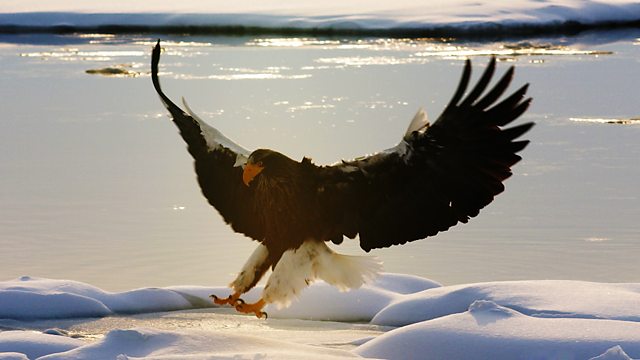Episode 9
Including an update on the oil spill off the Mississippi Delta, and a report by Howard Stableford on the biologists working on Humming Birds in the rainforests of Costa Rica.
9/40. It's a mixed bag in this edition of Saving Species, from all over the world. we have an update from Kelvin on the big oil spill off the Mississippi Delta. In recent days there have been significant amounts of oil washed up on beaches and the first image of an oiled sea turtle has been beamed around the world. We'll have the latest from the perspective of the wildlife and how resilient the soft sediment coastal habitats are to this pollution.
Sticking with the Americas, we head south to Central America and the rainforests of Costa Rica. Howard Stableford has been there for Saving Species to meet Oregon State University biologists working on Humming Birds in the forests. Howard discovers that the Humming Birds are crucial plant pollinators for the forest, but those birds near the forest edge will head into the banana plantations before the forest, lured there because banana flowers are loaded with nectar, the humming birds food. What then are the implications for rainforest regeneration without their humming bird pollinators? Howard asks the questions.
We'll also be on the Australian Great Barrier Reef to encounter Sea Snakes. Our reporter James Brickell is on the reef and files his first report.
And the Spoonbill Sandpiper - a small wading bird that winters in Myanmar and breeds in East Asian Russia, is the subject of emergency research by the British Trust for Ornithology (BTO). The BTO tell us this bird species is declining by 25% a year. Why such a steep population decline and what can be done about it. We hear both from the Wash Estuary in England and from the work in Asia to save it.
Presented by Brett Westwood
Produced by Sheena Duncan
Series Editor Julian Hector.
Last on
More episodes
Previous
Next
Broadcasts
- Tue 1 Jun 2010 11:00Βι¶ΉΤΌΕΔ Radio 4
- Thu 3 Jun 2010 21:00Βι¶ΉΤΌΕΔ Radio 4
The Open University
Get closer to the species with The Open University

